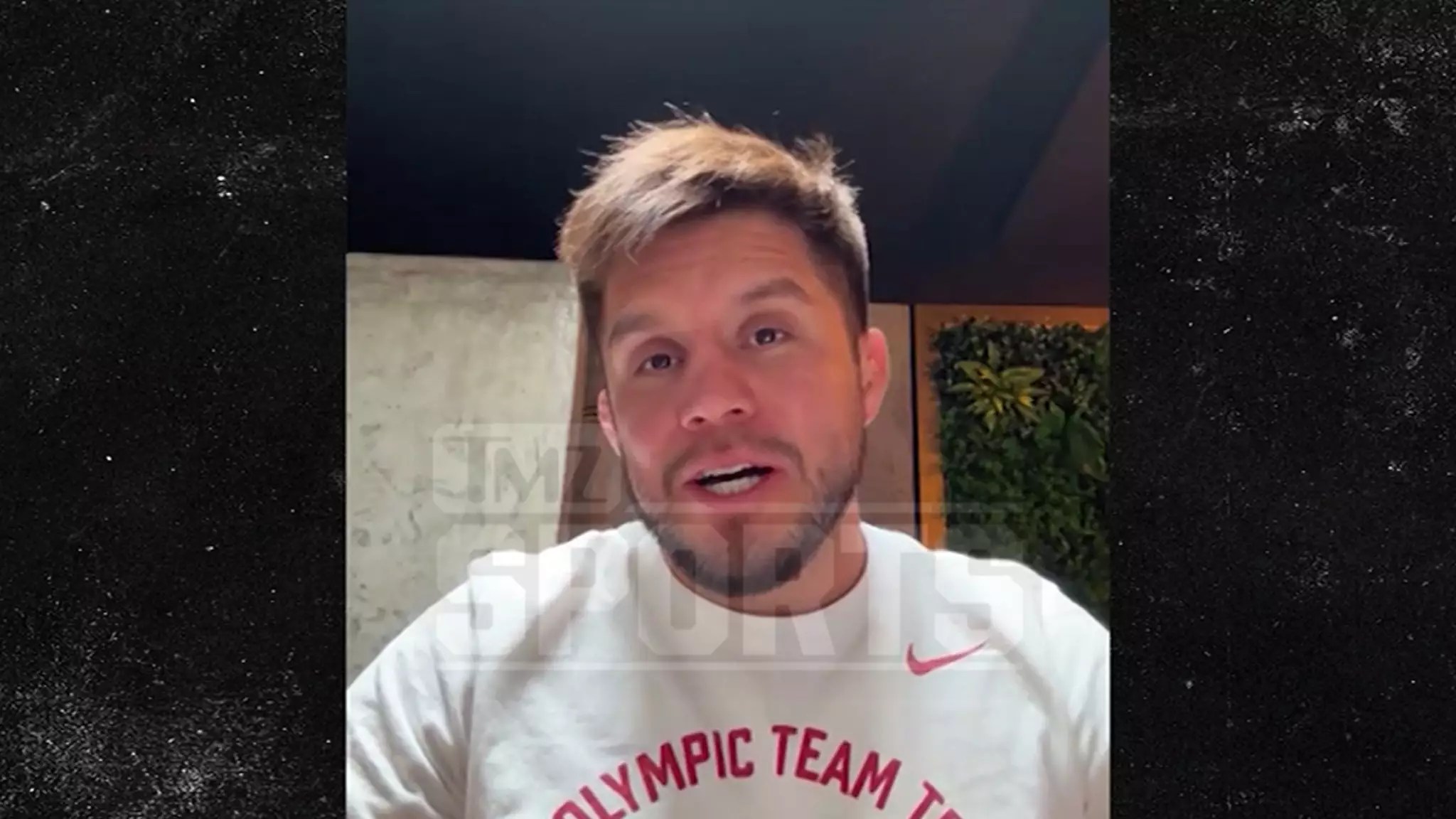In a dramatic turn of events last week, former UFC champion Henry Cejudo found himself thrust into an unexpected role: that of a hero. As he watched a vehicle hurtling down his Phoenix street at what can only be described as a reckless speed—an estimated 80 MPH—Cejudo didn’t just stand by. The audacity of the moment was heightened when the vehicle, after losing control, went airborne and crashed into a neighbor’s home. It is a chilling reminder of the chaos that can erupt in everyday life and the critical decisions that can follow.
Cejudo’s account encapsulates the frantic nature of the situation. It raises questions about how individuals respond to life-threatening scenarios when they are not just passive observers, but potential participants in a high-stakes confrontation. “If I wasn’t there, this kid would have been dead,” Cejudo asserted. This sentiment reflects not only his belief in the importance of his intervention but underscores how swiftly events can escalate into fatal consequences.
The Reality of Violence
When the suspects began fleeing the scene, Cejudo felt a palpable sense of danger. While many would argue that fleeing provokes a natural instinct to chase, he exercised restraint, acutely aware that the individuals he encountered could be armed. The description of his neighbor, who cocked a firearm in the heat of the moment and issued a chilling threat, highlights a broader societal issue concerning the extreme lengths to which some individuals may resort in the heat of passion. This incident serves as a stark reminder of the thin line between justice and vengeance, as well as the volatility encapsulated in human emotions during crises.
His decision to intervene when one suspect attacked a confronting neighbor speaks volumes about the instinct to protect in the face of danger. Cejudo limited his physical engagement to a controlled takedown, highlighting the necessity of managing such situations with an awareness of the potential for escalating violence. His reflection that the suspect should be “grateful” for his intervention suggests a complex interplay of morality and personal accountability—a moment where he wielded his strength not just as a UFC fighter, but as a responsible member of society.
Cultural Reflections and Lessons Learned
Cejudo’s experience ignites a discussion about the idea of accountability in our communities. In a world where reckless choices can so easily spiral into tragedy, it raises the question: how do we educate those who choose to gamble with human life? With the suspect, identified as 22-year-old Angel Cota, ultimately facing DUI and assault charges, it’s crucial to recognize the valuable learning moments embedded within such episodes.
The hope that Cota will learn from this experience elicits a strong sentiment—a desire not just for punishment, but for genuine rehabilitation. Cejudo’s call for the young man to do time isn’t merely a punitive perspective; it signifies a hope that personal transformation can emerge from the ashes of chaos, perhaps preventing further acts of carelessness in the future. In society’s shadows lurk the implications of reckless behavior; how often do we engage in conversations about preventive measures rather than reactive justice?
Henry Cejudo’s intervention during this harrowing event amplifies a collective yearning for safety and responsibility. As we reflect on this incident, it is crucial to grapple with the broader narratives surrounding individual choices and the repercussions they bear on our communities and lives. Let us hope that stories like Cejudo’s catalyze meaningful discussions surrounding accountability, compassion, and ultimately, growth from tragic circumstances.







Leave a Reply